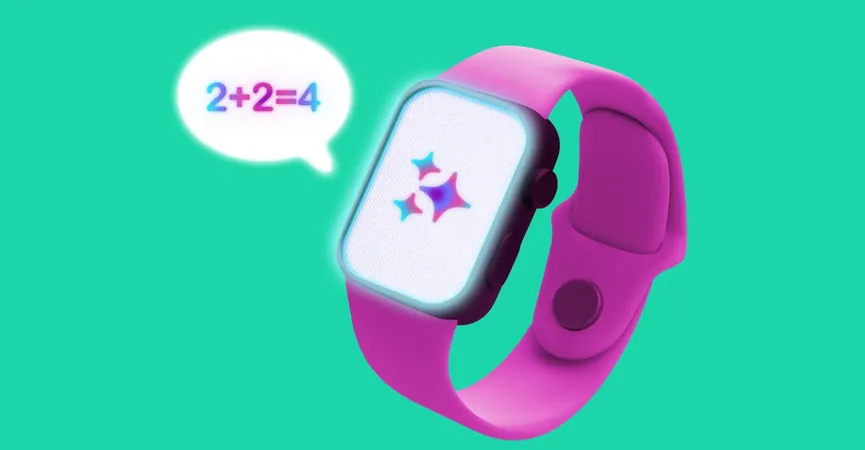
Why AI Fitness Summaries Are Falling Flat: A Deep Dive into the Data
2025-06-29
Author: Siti
The Overhyped Promise of AI in Fitness Apps
After years of testing wearables, I've accumulated a staggering amount of health data. Yet, there's one feature I dread: AI-generated summaries. Recently, every fitness-related app seems to be jumping on the AI bandwagon, promising simplified insights from a sea of data.
What Are These Summaries Really Saying?
Strava's 'Athlete Intelligence,' Whoop's 'Whoop Coach,' and Oura's 'Oura Advisor' all claim to present workout data in 'plain English.' Each day, they deliver summaries that sound encouraging but often repeat data already visible in charts. For example, a standard morning summary might say: 'Good morning! You slept for 7 hours; your heart rate is normal, but consider going to bed earlier if feeling tired.' Helpful? Maybe, but redundant when the same info is right in front of you.
Missing the Mark on Important Details
Take my recent run, for instance. Strava summarized it as an 'intense run with high heart rate zones,' but what it neglected to mention was the sweltering 85-degree heat and my injury from a fall that ended my session early. Instead of providing insight, it merely restated my metrics. Ideally, a smarter summary would caution against increasing mileage too quickly and suggest safer alternatives, like low-intensity walks while healing.
When You Need Guidance, Where's the Help?
In-app chatbots like Whoop Coach often throw back irrelevant responses. I even tried explicitly stating my injury, only to be met with prompts to reach out for membership services. Oura Advisor showed more promise, but it still required me to guide it towards meaningful responses.
The Reality of AI Limitations
The frustration with these AI features is echoed by many users. Despite claims of positive feedback from companies like Oura, the insights provided are often too generic for long-time users. They offer baseline advice that may assist newbies but fall flat for seasoned athletes seeking personalized guidance.
Are We Settling for Mediocrity?
While I understand the challenges of integrating AI with health data, it feels like these summaries are more about covering basics than delivering true insights. Strava may have a wealth of historical data, but it lacks the capability to analyze it fully for unique, actionable advice. The results? These summaries end up resembling a first grader's book report—shallow, recycled content that doesn't scratch the surface.
The Future of AI in Fitness: A Promising But Distant Goal
Until AI can truly harness the depth of health data and craft actionable insights, we're stuck with mediocre summaries. The potential is there, but for now, relying on software that feels like a polite rehash of what I already know simply isn't worth the extra cost. Perhaps one day, the technology will evolve into a useful companion for serious fitness enthusiasts.



 Brasil (PT)
Brasil (PT)
 Canada (EN)
Canada (EN)
 Chile (ES)
Chile (ES)
 Česko (CS)
Česko (CS)
 대한민국 (KO)
대한민국 (KO)
 España (ES)
España (ES)
 France (FR)
France (FR)
 Hong Kong (EN)
Hong Kong (EN)
 Italia (IT)
Italia (IT)
 日本 (JA)
日本 (JA)
 Magyarország (HU)
Magyarország (HU)
 Norge (NO)
Norge (NO)
 Polska (PL)
Polska (PL)
 Schweiz (DE)
Schweiz (DE)
 Singapore (EN)
Singapore (EN)
 Sverige (SV)
Sverige (SV)
 Suomi (FI)
Suomi (FI)
 Türkiye (TR)
Türkiye (TR)
 الإمارات العربية المتحدة (AR)
الإمارات العربية المتحدة (AR)